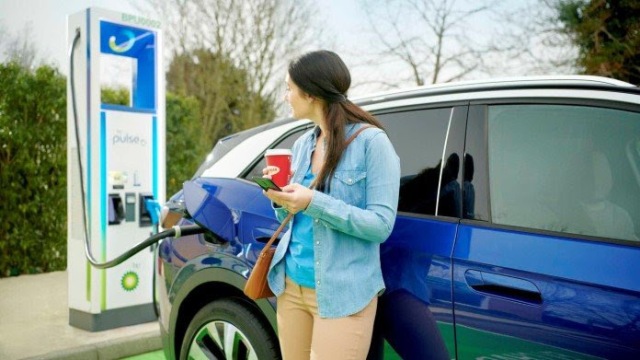Major automakers announced the formation of a new company aimed at providing electric vehicle (EV) charging infrastructure across the United States.
The group includes some of the biggest names in the automotive industry, such as General Motors, Stellantis, Hyundai Motor, Kia, Honda, BMW, and Mercedes Benz, together representing about half of all U.S. vehicle sales. Despite their significant market share, these brands currently hold a small portion of the EV market, which remains dominated by Tesla.
The primary goal of this unexpected coalition is to establish themselves as the leading provider of fast-charging solutions in North America. Their ambitious plan involves rolling out an impressive 30,000 chargers strategically placed along major highways and within urban areas. This move comes in response to the growing demand for EVs and the need for a robust and efficient charging infrastructure to support the increased adoption of electric vehicles.
Though the automakers did not disclose the individual or collective investment figures, they expressed openness to additional funding from outside sources, including companies beyond the automotive industry. The joint-venture is designed to bolster the expansion of EV charging stations and take advantage of the Biden administration’s subsidies aimed at promoting electric mobility.
As it stands, Tesla currently maintains the largest network of fast-chargers in the United States, with nearly 18,000 Superchargers available for use. However, in an attempt to benefit from federal funding and ensure eligibility for a share of the $7.5 billion in subsidies, Tesla declared its willingness to open its charging network to EVs manufactured by rival brands.
Tesla’s significant lead in charging infrastructure has granted the company a strong influence in shaping the standards for future EV connectivity and charging protocols. This has raised concerns among smaller charging companies and other EV manufacturers, who seek to ensure a level playing field in the industry.
To address this concern, some of the automakers involved in the joint venture, such as GM and Mercedes, have agreed to adopt Tesla’s charging technology starting in 2025. This move grants them access to a larger portion of Tesla’s Superchargers.
However, not all automakers participating in the alliance have committed to Tesla’s North American Charging Standard (NACS). Stellantis, Hyundai, Honda, and BMW have product plans that rely on a competing technology known as the Combined Charging System (CCS). In a bid to accommodate different charging standards and foster cooperation within the industry, the new charging company will support both CCS and the Tesla standard.
The CEOs of the seven auto brands emphasized the importance of building a charging network comparable to traditional gas stations, complete with restrooms, food service, and retail operations. Such an infrastructure is expected to facilitate a faster and more extensive rollout of EVs, with industry leaders projecting EV sales to exceed 50 percent of all U.S. vehicle sales by 2030.
This joint venture faces competition from established EV charging companies, including Volkswagen’s Electrify America, ChargePoint, and EVGo. These companies are also looking to accelerate their charger deployment with the support of federal funding.
The Biden administration has set an ambitious target of achieving 500,000 charging stations by 2030, a nearly four-fold increase from the current number. This initiative is part of the administration’s broader efforts to promote sustainable transportation and combat climate change. The collaborative efforts of major automakers in establishing this charging company are poised to play a crucial role in the nation’s transition to electric mobility in the coming decade.

